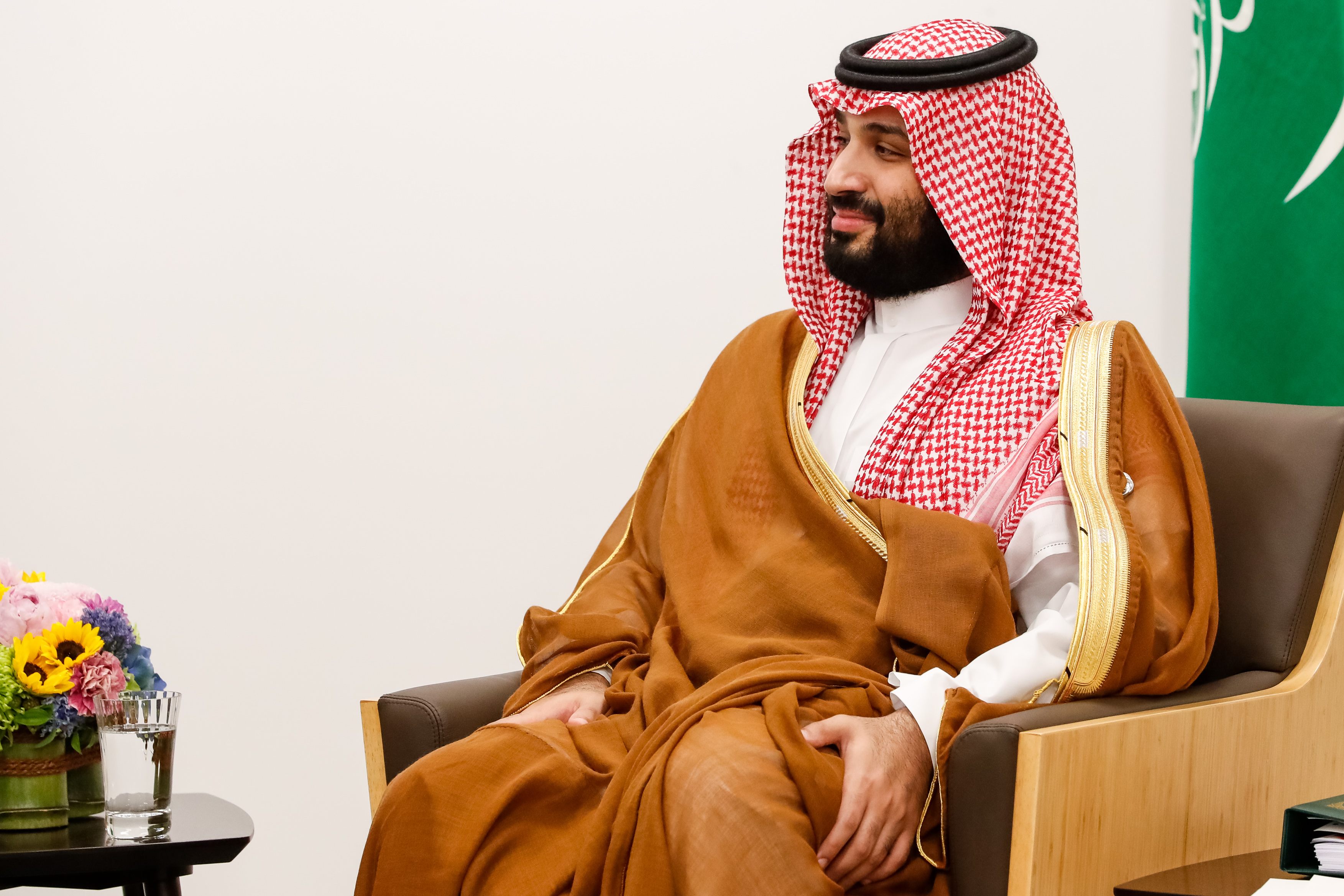Mohammed bin Salman, Son of the Iraq War
Editor’s Note: This article originally appeared on Order from Chaos.
Two things come together this week that highlight the deep connection between today’s Saudi policies and the 2003 Iraq War: Saudi Crown Prince Mohammed bin Salman visits Washington as the town commemorates the 15th anniversary of that disastrous conflict. The connection may be deeper than many acknowledge.

Published by The Lawfare Institute
in Cooperation With

Editor’s Note: This article originally appeared on Order from Chaos.
Two things come together this week that highlight the deep connection between today’s Saudi policies and the 2003 Iraq War: Saudi Crown Prince Mohammed bin Salman visits Washington as the town commemorates the 15th anniversary of that disastrous conflict. The connection may be deeper than many acknowledge.
Much of the discourse in recent weeks has focused on the personality of the Saudi crown prince to explain what seem to be extraordinary changes in Saudi foreign and domestic policies. But the connection between these events and George W. Bush’s war is often missed.
For decades, Saudi foreign policy had two central security features in the Gulf region and domestically: relying on the United States, and maintaining a balance of power between Iraq and Iran to assure that neither could pose a threat to Saudi security and interests in the region. That environment allowed Saudi Arabia to avoid being directly dragged into conflict, using its economic and political assets to influence events as needed. Before the Islamic revolution in Iran, Saudi Arabia had an amicable relationship with the Shah’s Iran, as it balanced a radical Iraq. Following the rise of the Ayatollah Khomeini, Riyadh backed Saddam Hussein’s war against Tehran, fearing expanding influence of revolutionary Islamist Iran. When Iraq invaded Kuwait in 1990, the Saudis relied on the United States to reverse Iraq’s invasion. But following that war, the Saudi animosity toward Saddam Hussein didn’t reverse Riyadh’s strong preference for maintaining Iraq as a balancer to Iran. And even though groups like al-Qaida—which had some roots in Saudi Arabia—still posed threats, the broader regional environment assured that most of its bases were far away from the Saudi neighborhood, in Afghanistan.
The 2003 Iraq War had three predictable consequences: It created so much instability that al-Qaida, and later ISIS, could thrive right next door, first in Iraq, later in Syria and Yemen, posing greater threats to the Saudi homeland. Second, the war ended any prospect of Iraq serving as a balancer of Iran, just as Iranian power was on the rise. Third, the extraordinary costs of the failed Iraq War, both in blood and treasure, led to an anti-war sentiment in the United States that undermined Saudi confidence in the U.S. willingness and ability to intervene effectively if and when the Saudis felt this was needed. These events generated significant insecurity within and outside Saudi borders, which was exacerbated by the Arab uprisings that toppled seemingly entrenched rulers, including close Saudi allies.
In other words, the Iraq War—combined with the Arab uprisings—intensified Saudi insecurity at home and in the neighborhood at a time when the anchors of Saudi security policy were significantly undermined by the war, forcing the Saudis into a higher degree of self-reliance than they were accustomed to, or good at. Thus, Riyadh became far more interventionist in foreign policy, even before the rise of King Salman and his son, Crown Prince Mohammed bin Salman: from attempts to influence politics in Iraq to limit the rising influence of Iran, to heavily investing in Lebanon to counter Hezbollah’s influence, to working clandestinely and aggressively to organize and support opposition to the Bashar Assad regime in Syria. It’s not that Saudi Arabia had not for decades used its economic and political influence to affect regional politics; it is that the degree to which that was true, including taking initiative and using enormous resources, reflected a sense of strategic urgency.
Of course the Yemen war is on a different scale for Saudi Arabia, in terms of the direct involvement of its military, the expenditures, the tragic humanitarian consequences, and the prospect of more instability that could come back to haunt Riyadh. The decision to wage that war may be owned by the crown prince personally, but the urge to assert new rules of regional politics was more broadly shared in Saudi Arabia following that fateful 2003 war.
As the shadow of the Iraq War follows the Saudi crown prince into the White House, the agenda is equally influenced by that war: the Saudis are eager to consolidate relations with the Trump administration and hope that Washington once again is prepared to be more interventionist, this time toward Iran. In a way, Riyadh hopes to reverse some of the troubling consequences of the Iraq War by luring Trump into a confrontation with Iran that could undermine some of Iran’s gains since 2003. Such a course, however, starting with a likely Trump withdrawal from the Iran nuclear deal, could set the United States and its allies on a dangerous slippery slope toward another war—one whose consequences could be even more costly than the 2003 disaster.


.jpg?sfvrsn=407c2736_6)


